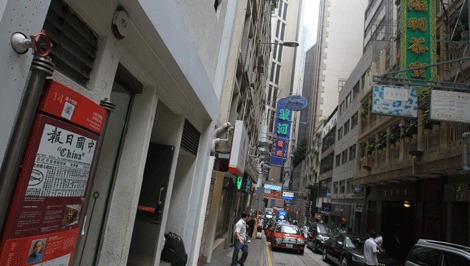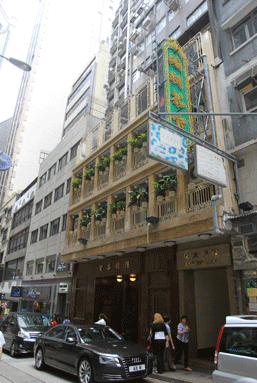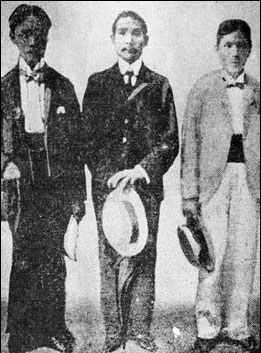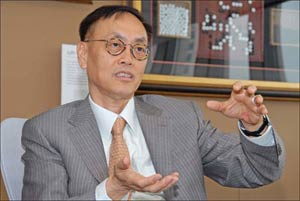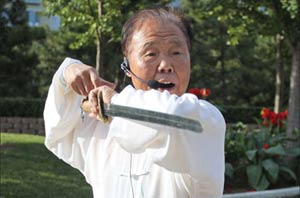Power of persuasion
Updated: 2011-10-12 07:54
By Ming Yeung (China Daily)
|
|||||||||
|
The Luk Yu Tea House on Stanley Street in Hong Kong, which once served as the office of the revolutionary paper, China Daily. [Edmond Tang / For China Daily] |
Hong Kong and its China Daily newspaper contributed hugely to the success of the 1911 Revolution. Ming Yeung reports.
Hong Kong's contribution to the 1911 Revolution is often neglected amidst a sea of places claiming a significant role in this epoch-making event.
"Even though the success of the revolutionary uprising was mainly a result of events (on the mainland), the idea for a revolution was conceived in Hong Kong, where the original organization dedicated to the revolution also put the idea into action for the first time," Steve Tsang writes in A Modern History of Hong Kong.
Hong Kong's patriotic merchants contributed greatly to the success of the 1911 Wuchang Uprising that toppled China's last dynastic regime.
|
Another view of the Luk Yu Tea House. [Edmond Tang / For China Daily] |
Its strategic location and a comparatively open political environment, made Hong Kong an ideal place for revolutionaries to hatch plots, facilitate their financing and transport ammunition.
It was the command center for eight of the 10 uprisings led by revolutionary leader Sun Yat-sen between 1895 and 1911.
Sun attributed the success of the revolution to violence and propaganda and the Hong Kong media played its part in full in the latter respect.
Hong Kong is where Sun fostered his determination to overthrow the rotten Qing Dynasty (1644-1911) and to establish Asia's first republic.
In his famous address titled Why I Became a Revolutionist? at the University of Hong Kong in 1923, Sun admitted it was Hong Kong that convinced him of the need for China to change.
"I compared Heungshan (Sun's hometown in Guangdong province) with Hong Kong and, although they are only 50 miles (80 km) apart, the difference of the governments impressed me greatly.
"Afterwards, I saw the outside world and I began to wonder how it was that foreigners, that Englishmen, could do such things as they had done, for example, with the barren rock of Hong Kong, within 70 or 80 years, while (the mainland) in 4,000 years, had no place like Hong Kong," Sun said.
Before the First Opium War and the signing of the Treaty of Nanking in 1842, Hong Kong was an isolated fishing village with no more than 8,000 residents.
Fifty years after the British took Hong Kong the population exceeded 300,000 and it became a bustling open trading port linking the East and the West.
The British applied the common law system and because of that, residents were free of the legal code established by the Qing court.
In the late 19th century, the Hong Kong community, 90 percent Chinese, bristled at the imperial court's weakness and longed for a stronger and more civilized China - not as coldhearted outsiders, but sympathetic participants.
|
Sun Yat-sen (center) and his fellow revolutionaries Chen Shaobai (left) and Zhen Shiliang. |
The then Hong Kong governor Sir Frederick Lugard said, "Most Hong Kong Chinese are like this: They are not only sympathetic towards the revolution, but are passionate about it."
The Hong Kong government implemented a "non-intervention policy" and upheld the "freedom of speech" and "freedom of press" to let all ideas blossom on the island.
There were 26 publications in Hong Kong between 1900 and 1911, according to historian Li Kwok-sing from the Chu Hai College of Higher Education.
After a failed uprising in Guangzhou in 1899, it dawned on Sun that the pro-imperialist propaganda had succeeded and this problem needed to be addressed.
Unable to set foot on Hong Kong himself because he was banished for five years, in 1896 - as it was thought his presence would endanger law and order - Sun sent his friend Chen Shaobai over from Japan to publish the revolutionary newspaper China Daily (Zhongguo Ribao).
It would become an important part of the democratic revolutionary movement.
"The main purpose of China Daily was not to make profit, but to publicize revolutionary ideas and to rebut pro-imperial opinions," Li says.
Based on Sun's revolutionary principles - "The overthrow of the Manchus, the restoration of China, the adoption of a republican regime, the equalization of land rights" - China Daily argued that revolution was the "only solution for a better China".
China Daily had a circulation of 3,000 copies, two thirds of which were sold on the mainland and overseas, mainly to society members, businessmen and intellectuals.
The "Three Principals of the People" advocating nationalism, socialism and democracy - espoused by Sun - were first publicized in China Daily.
Its office building was also a meeting place for revolutionaries.
However, just months after its launch, in January 1900, China Daily experienced financial problems stemming from the fact that it hosted so many revolutionary figures in Hong Kong.
This was when Li Jitang, a business tycoon and a passionate revolutionary stepped up with an offer to finance the paper to the tune of HK$10,000 ($1,285) annually. In today's terms, this would be the cost of a building on Jervois Street in Hong Kong Central.
There were up to seven other revolutionary papers at the same time in Hong Kong, though they were less influential. China Daily also lasted longest, staying in circulation for 11 years before moving to Guangzhou for another two years.
In 1905, Tokyo's Min Bao replaced China Daily as the flagship of the revolutionary movement, as Japan was more amenable to the idea of revolution in China, compared to the British system headed by the monarchy.
Today's China Daily, which shares the same name, bears no relation to this paper and was started on the mainland in 1981.
"These revolutionaries were only chessmen manipulated by the Japanese government, a diplomatic tactic to pin down the Qing empire," says professor Lam Kai-yin from the history department at Baptist University. "The Japanese government believed one day, these people might be beneficial to them."
Lam says the pro-imperialist forces lost a lot of support to the revolutionaries because of the revolutionary media offensive. So much so that after 1905, financial donations were mainly made to Sun, rather than pro-imperialist forces.
The tide of revolution was overwhelming and it forced part of the New Army to turn against the Qing government and force its surrender, Lam says.
"The contemporary history of Hong Kong is inextricably linked to the mainland, and the role of the media played during the course of revolution should not be underestimated and should share equal footing with the sacrifices made by the revolutionists," Li comments.
